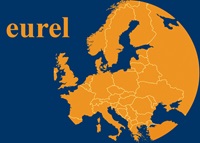Over 70% of Slovaks declared to be a member of a Christian church, mostly Catholic in 2011 (Tížik 2011). At the same time, the Slovak religious sphere has become plural (Podolinská, Krivý, and Bahna 2013). Especially in urban settings, alternative spiritualities have developed in recent years via the New Age, astrology, female spirituality, neobuddhism, neopaganism, neoshamanism, neohinduism (Bužeková 2012; Deák 2010; Jerotijević and Hagovská 2020; Macháčková and Dojčár 2002; Nádská 2014). These spiritualities have also permeated the workplace (Aupers and Houtman 2010; Baykal 2020; Bovbjerg 2010; Chen 2022), including in Slovakia (Bártová 2024). This presentation will focus on this penetration through the discourse and practices of personal development in relation to work in Slovakia. It is based on qualitative research conducted among Slovak female employees and entrepreneurs between 2020 and 2022. Thus, Buddhist meditation, feminine spirituality, theta therapy, yoga, tarot and other forms of alternative spirituality will be discussed. The presentation will look at how people refer to these resources within the work process, how they develop a lived religion through them with an emphasis on the holistic self, and how this relates to changes in the work environment. In the current work process, there is a strong emphasis on personal development and the development of so-called soft skills. Workers are also under pressure for efficiency, flexibility and work-life balance. In such work environment, approaches inspired by alternative spirituality help to develop skills valued by the current labour market and provide ways to respond to work challenges. However, they also place a greater emphasis on individuals' engagement with work (cf. Linhart 2015), including religiosity.

 PDF version
PDF version
